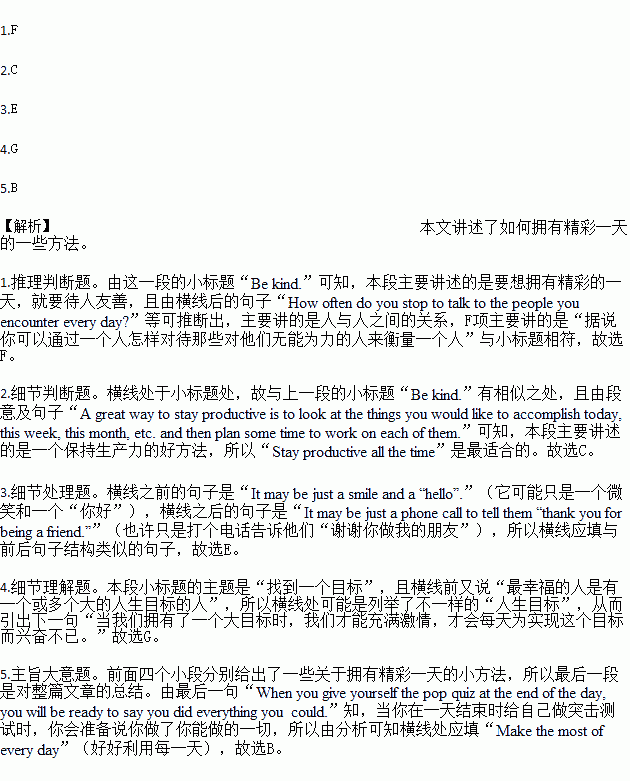题目内容
Some Ways to Have an Amazing Day
Here are a few tips for making sure you can answer the pop quiz of life confidently:
Be kind.
1. How often do you stop to talk to the people you encounter every day? Do you know the names of the people at the bank, the grocery store, or restaurant? One great way to get more out of your day is to fill it with people you know. The best way to know more people is to be kind to everyone you meet. Take a moment to learn a little about them.
2.
I avoided saying “Stay Busy” because sometimes we can fill our day with meaningless activities and feel busy but then at the end of the day we look back and realize we accomplished nothing. A great way to stay productive is to look at the things you would like to accomplish today, this week, this month, etc. and then plan some time to work on each of them.
Look for ways to serve.
I truly believe that giving meaningful service to other people is the greatest key to our personal happiness. It may be just a smile and a “hello”. 3. It may be just a phone call to tell them “thank you for being a friend.” When we serve other people, we develop personal joy.
Find a purpose.
The happiest people have one or more big “life goals”. 4. When we have a big goal that we feel passionate about we become more excited to work on that goal every day.
5. When you give yourself the pop quiz at the end of the day, you will be ready to say you did everything you
could.
A. Keep learning new things
B. Make the most of every day
C. Stay productive all the time
D. Try to do more in your everyday life
E. It may be helping them with their work
F. It has been said that you can measure a person by how they treat the people who can do nothing for them
G. It may be to run a marathon, write a book, start a business, develop a product or learn a new hobby or profession.

